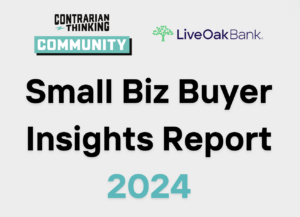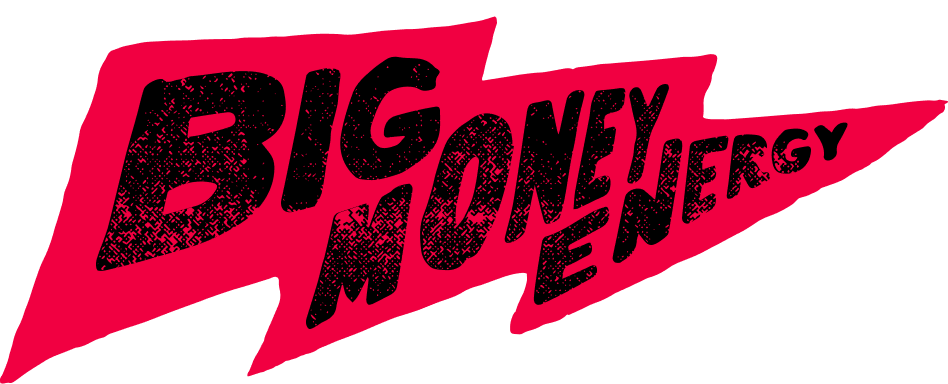
Over 90% of American homes are cooled with air conditioning.
More than half of a home’s typical energy usage goes right to heating and cooling needs.
When this equipment breaks, HVAC technicians provide things like:
- An evaluation of the problem
- Recommendations for fixing the issue with existing equipment
- Cost estimates and installation support for new equipment
People rely on heating and cooling anyway, but especially during severe weather when it can become a safety or property damage issue.
And with rising temps and a greater need for energy-efficient technology, consumers will count on HVAC companies even more in the years to come.

Unlike plumbing, where someone may try to DIY it by checking out a YouTube video to fix a leaking toilet before calling in the pros. But most homeowners don’t have the skills to diagnose, much less fix, heating and cooling issues.
It’s kind of a no-brainer that you should leave any system involving complex electrical components and gas/propane lines to the experts.
Starting an HVAC company could provide consistent demand and cash flow for aspiring entrepreneurs.
But it’s easier to take the path less traveled by buying an existing venture rather than starting your own. Here’s what you need to know.
Why HVAC is One of the Most Attractive Boring Businesses
HVAC repair and installation is just complicated enough that almost everyone hires outside help with it.
And whether you live in the northern or southern half of the U.S., people rely on these systems year-round for indoor comfort. You can start a residential or commercial heating and cooling business to meet the needs of these customers.
HVAC is a booming industry. In 2022, it had an estimated market value of $158 billion. By 2028, it’ll be at almost $228 billion.
And the money you can make isn’t half bad, either. Check this out:
- Filter cleanings? $2-$50
- Drain line cleanings? $75-$200
- System energy efficiency audit? $100-$300
- Coil maintenance and cleaning? $150-$300
- Refrigerant replacement? $200-$450
And those are just the maintenance jobs. You can charge even more for the big stuff.
Before you go jumping on the HVAC train, though, there are a lot of technical aspects to this business. You’ll need a distinct skill set to analyze, fix, and install HVAC equipment.
And Why Buying an HVAC Service is Better than Building One
Working in an HVAC business as a technician requires special skills and training, so it’s harder to start a successful business like this from the ground up with no background in the industry.
When you buy someone else’s HVAC business, you can keep the company’s employees on the payroll. They can continue to provide certified and reliable help to customers with no downtime.
This means you don’t need to work as a technician yourself and can instead focus on growing the business.
Since it takes anywhere from 6 months to 3 years to get HVAC certified on your own, it’s far easier to hire a team with certs under their belt already.
Beyond that, there are a few other reasons it’s better to buy an established HVAC business, such as:
- You don’t need to lay out major cash for new equipment and can buy the used materials from the existing business owner.
- You’ll save time trying to find reliable vendors and partners to work with since these relationships exist already.
- An existing HVAC company should have market traction already, and it’s much better to build on that foundation rather than trying to carve out a niche as a brand-new player.
- You can structure the business deal with seller financing instead of going through the hassle of bank or business loans.
Finding an HVAC company to buy may be easier than you think. You can often spot them on websites like:
- BizBuySell
- BizQuest
- BusinessesForSale.com
- BizScout (Full disclosure: We own this one, but it’s a great way to find off-market deals on businesses.)
Check out this video for more tips on locating a scale-ready business:
But if you really want to start your own HVAC company, here’s what to do:
- Investigate the market
- Write a solid business plan
- Navigate licensing
- Secure funding
- Buy equipment
- Find a business location
- Hire and train your team
- Market your business
1. Investigate Your Market Landscape
Who else offers HVAC services in your area?
What do they charge?
Do they specialize in any target markets?
Do they have good reviews from customers?
Ask these questions to start narrowing down who you want to help with your HVAC business.
You may go narrow, such as only helping residential customers, or broaden out to serve both businesses and homeowners.
Your area market research tells you a lot about current solutions and the extent of market saturation.
If you buy an established HVAC company, you can look at their financial data to get a much stronger sense of the real need and future projections.
2. Craft a Winning Business Plan

For a new company, the business plan outlines your goals and tactics and draws from the most important information from market research.
The core components of an HVAC business plan include:
- Your marketing strategy
- Your services and pricing details
- The demographics of your target market
- Your business goals
- Your funding needs for startup and ongoing expenses
If you buy an operating company instead of launching your own, you can review and optimize the current business plan.
There’s a good chance, for example, that an existing HVAC company could use better software. Implementing this could enhance customer service and efficiency for the entire team. But, at the same time, that business already has its services and pricing perfected—less work for you there!
3. Navigate Licensing and Certifications
First thing first: you need to register your business with the state.
After that, you’re state might require you to have a special HVAC business license.
This industry has regulations you must know about and adhere to. Every technician needs proper training. Here are the steps required to work on HVAC equipment:
- Sign up for a training or apprentice program. Your state may require you to earn a certificate or an associate’s degree.
- Pass a state exam for licensing purposes.
- Get certified (common certs include the EPA’s Section 608 cert and the Refrigeration Service Engineers Society’s R-410A).
Community colleges frequently offer HVAC training or apprenticeships.
If you don’t plan to work on the equipment directly, your employees still need it.
Don’t forget to buy business insurance, too, such as general liability coverage and workers’ compensation protection.
Buying an existing HVAC company gives you the chance to step into that ownership role immediately without going through additional school and training.
4. Secure Funding for Your Business

Within your business plan, document the startup expenses and ongoing costs you may need, such as rent payments for your office.
As you set up the company, make sure to treat it like a business from day one and track every dollar in and out. Open a separate bank account just for business funds, too.
Most HVAC business owners turn to one or more of three funding options:
- Personal assets (credit cards, personal loans, or cash from savings)
- Investors
- Business or bank loans
Depending on the equipment needed, such as a company vehicle, startup costs can exceed your personal savings.
Investors can give you the cash needed to jumpstart the company. But they will want their money back, and they’ll take a portion of future profits indefinitely if they invest as a partner.
Getting a business loan from the SBA or an area bank may provide a cash infusion, but they come with red tape and very specific rules.
If you choose to buy a current HVAC company, you have the option of pitching seller financing. In this model, you propose your own terms and payback period to the business owner, which may limit your money down.
5. Buy Essential Equipment and Supplies
You can expand into more professional or expensive equipment over time, but you need these to start:
- A work vehicle or vehicles to get to jobs
- A hand tool set with pliers, gauges, metal, hammers, staple guns, and tube cutters
- Leak detectors
- Tape measures
- Phase testors
- Refrigerant scales
- Equipment removal tools
- PPE gear and safety equipment, including gloves, earplugs, and masks
- Software for accounting/billing, booking, and customer relationship management (pro tip: check out Service Titan and Jobber to keep track of jobs)
For a work truck, consider used vs. new to keep the costs down.
That’s a bigass laundry list for just the bare minimum supplies. New business owners will need to scrap together the cash to get all of these things. Then, they’ll need to piece together orders from different vendors before they can get started.
When you buy a business, you can roll all these supplies (and more) into the purchase price. And if you’re able to negotiate a seller-financed deal, you can get the equipment on better terms than a loan.
One tip if you buy someone else’s business: Check out the state of any equipment and factor that into your offer.
6. Buy or Build a Location for Your Business
HVAC businesses need a lot of stuff.
They also need a place to secure and store all that used or new HVAC equipment. Even a warehouse for all your supplies, vehicles, and equipment will keep things organized.
And most HVAC companies will need at least a small office space for the operations team to make sure everything is on track.
When choosing a location, consider:
- The square footage you really need (don’t overbuy, but leave some room for expansion)
- Proximity from the office to most service jobs
- Cost per month and lease terms
If you build your own space, it will take longer to get things off the ground than if you rent an existing warehouse or office space. But if you buy a business, you’ll also get its storage and office space in the deal.
7. Hire and Train Your Dream Team

The people you hire can make or break your success in the HVAC world. The shortlist of people you need to hire includes:
- Salespeople
- Administrative support staff
- Technician
When it comes to technicians, you need professional, skilled, and reliable workers since they’ll interact with customers every single day.
Spend time connecting with others in the industry, including trade schools and apprenticeship programs, who can send new grads your way.
Once you hire someone, give them ongoing training and provide benefits that increase their employee loyalty. If you build a great place to work and pay them fairly, you can build long-term relationships with your employees.
When you buy rather than build, you can negotiate to keep all existing team members on staff so there’s no downtime when you take over.
8. Ignite Your Marketing Engine and Focus on Customer Acquisition
Your business needs a strong brand identity to signal to your target customer who you are and who you serve.
Purchase basic marketing materials like business cards for you and all your techs once you have a logo.
Create a marketing plan with a mix of online and offline strategies. Connect with other business owners in your area to share referrals with one another, such as pool cleaning companies, general contractors, electricians, and plumbers.
For your online presence, develop a website targeting important heating and cooling keywords in your region and a clear explanation of your services.
Claim social media profiles and a Google Business profile. Aim to get as many reviews as possible from satisfied customers. Reviews and word of mouth advertising go a long way in the service industry.
Next Steps to Scale Your HVAC Business
Once your business is up and running, it’s time to think about scaling. Optimize existing processes to free up your time and energy to do things like:
- Develop new services like plumbing, solar panel installation, or electric
- Create new offerings like customer loyalty or membership programs
- Expand into new territory
If you choose to buy a current HVAC company, you start at this point of operationalizing and scaling as soon as you take over.
Is HVAC Your Next Cool Venture?
The demand for HVAC help is heating up. By evaluating the market, mapping out your plan, and finding the equipment and staff to get started, you can carve out a piece of the pie.
Or you can skip right to the cash money phase of the business by buying into an existing HVAC business and then improving it. What you choose depends on how fast you want to grow.





